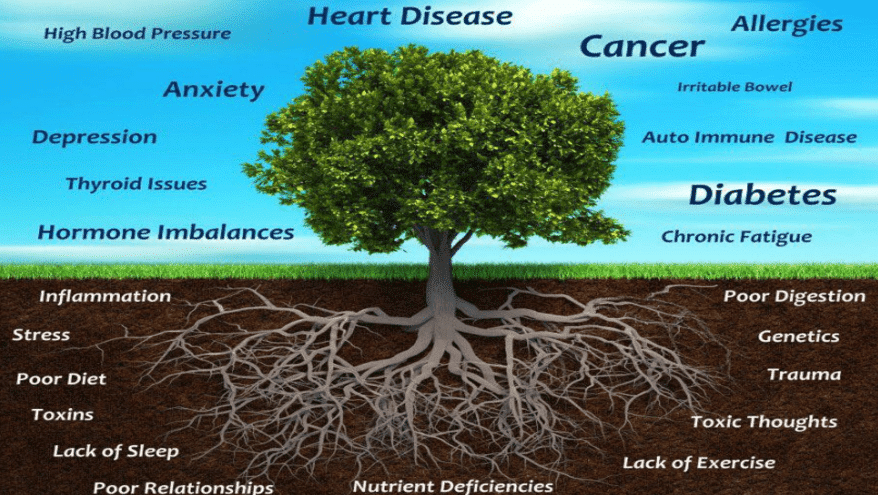In the realm of healthcare, Functional Medicine has emerged as a holistic approach that focuses on treating the root causes of illnesses rather than just addressing symptoms. Unlike conventional medicine, which often relies on standardized treatments for specific diagnoses, Functional Medicine takes into account the unique genetic, environmental, and lifestyle factors that influence an individual’s health.
What is Functional Medicine?
Functional Medicine is a patient-centered approach to healthcare that aims to restore balance and optimize the body’s functions. It views the body as an interconnected system, where imbalances in one area can manifest as symptoms elsewhere. Rather than simply prescribing medications to alleviate symptoms, Functional Medicine practitioners seek to understand the underlying causes of illness by taking a comprehensive look at a patient’s medical history, genetic makeup, lifestyle habits, and environmental exposures.
The Principles of Functional Medicine
Functional Medicine is guided by several key principles:
- Biochemical Individuality: Recognizing that each person is biochemically unique, with distinct genetic predispositions and environmental influences.
- Patient-Centered Care: Placing the patient at the center of the healthcare journey, with a focus on personalized treatment plans tailored to individual needs and preferences.
- Addressing the Root Cause: Identifying and addressing the underlying factors contributing to illness, rather than just treating symptoms.
- Promotion of Health as a Positive Vitality: Emphasizing proactive strategies to enhance overall health and well-being, rather than just managing disease.
- Holistic Approach: Viewing the body as an integrated system, considering the complex interactions between genetics, environment, lifestyle, and physiology.

The Importance of Functional Medicine
Functional Medicine offers several important advantages over conventional medical approaches:
- Comprehensive Assessment: By considering a wide range of factors, including genetics, diet, stress levels, and environmental exposures, Functional Medicine provides a more comprehensive understanding of a patient’s health status.
- Personalized Treatment Plans: Rather than employing a one-size-fits-all approach, Functional Medicine practitioners develop personalized treatment plans tailored to each individual’s unique needs, preferences, and goals.
- Preventive Care: Functional Medicine emphasizes preventive strategies to optimize health and reduce the risk of chronic diseases, focusing on lifestyle modifications, nutrition, stress management, and other wellness interventions.
- Empowerment of Patients: Functional Medicine encourages active participation from patients in their healthcare journey, empowering them with knowledge and tools to make informed decisions about their health.
- Collaborative Approach: Functional Medicine often involves collaboration between patients and a team of healthcare providers, including physicians, nutritionists, chiropractors, and other allied health professionals, fostering a multidisciplinary approach to care.
The Benefits of Functional Medicine
- Treatment of Chronic Conditions: Functional Medicine has shown promising results in the management of chronic conditions such as autoimmune diseases, gastrointestinal disorders, hormonal imbalances, and metabolic syndromes.
- Improved Quality of Life: By addressing the underlying causes of illness and promoting holistic wellness, Functional Medicine can significantly improve patients’ quality of life, leading to enhanced vitality, energy, and mental well-being.
- Reduced Reliance on Medications: Functional Medicine seeks to reduce reliance on medications by addressing root causes and promoting lifestyle modifications, potentially minimizing side effects and long-term complications associated with pharmaceutical interventions.
- Long-Term Health Benefits: By emphasizing preventive strategies and lifestyle modifications, Functional Medicine aims to not only alleviate symptoms but also promote long-term health and resilience, reducing the risk of future illnesses and enhancing overall well-being.
- Empowerment and Education: Functional Medicine empowers patients with knowledge, skills, and tools to take control of their health, fostering a sense of empowerment and self-efficacy in managing their well-being.

Frequently Asked Questions(FAQs)
Q: What is Functional Medicine?
A: Functional Medicine is a holistic approach to healthcare that focuses on treating the root causes of illness by considering a person’s unique genetic, environmental, and lifestyle factors. It aims to restore balance and optimize the body’s functions, rather than just addressing symptoms.
Q: How is Functional Medicine different from conventional medicine?
A: Unlike conventional medicine, which often relies on standardized treatments for specific diagnoses, Functional Medicine takes a personalized approach. It seeks to understand the underlying causes of illness and promotes proactive strategies to enhance overall health and well-being, rather than just managing disease symptoms.
Q: What conditions can Functional Medicine help with?
A: Functional Medicine can address a wide range of conditions, including autoimmune diseases, gastrointestinal disorders, hormonal imbalances, metabolic syndromes, and chronic pain. By addressing underlying imbalances and promoting holistic wellness, Functional Medicine aims to improve the quality of life and reduce the risk of chronic diseases.
Q: How does Functional Medicine approach treatment?
A: Functional Medicine practitioners develop personalized treatment plans tailored to each individual’s unique needs, preferences, and goals. These plans may include dietary modifications, lifestyle interventions, nutritional supplements, stress management techniques, and other holistic therapies aimed at restoring balance and optimizing health.
Q: Is Functional Medicine suitable for everyone?
A: Functional Medicine can benefit individuals of all ages and health statuses, from those seeking preventive care to those managing chronic conditions. It offers a patient-centered approach that empowers individuals to take control of their health and well-being, promoting long-term vitality and resilience.
Conclusion
In conclusion, Functional Medicine offers a holistic and patient-centered approach to healthcare that emphasizes personalized treatment plans, preventive strategies, and addressing the root causes of illness. By considering the complex interactions between genetics, environment, lifestyle, and physiology, Functional Medicine aims to optimize health, improve quality of life, and empower patients to take control of their well-being.
As the field continues to evolve, Functional Medicine holds great promise in transforming the landscape of healthcare, promoting wellness, and enhancing vitality for individuals across the globe. For more information on Functional Medicine and what you should look for when choosing a Functional Medicine Practitioner give Patients Medical a call at: (212) 794-8800.


